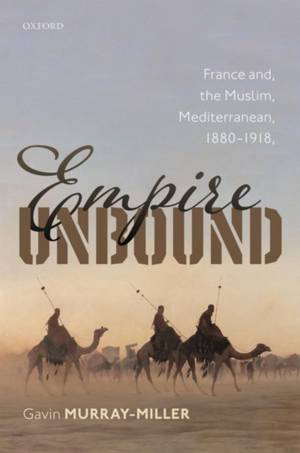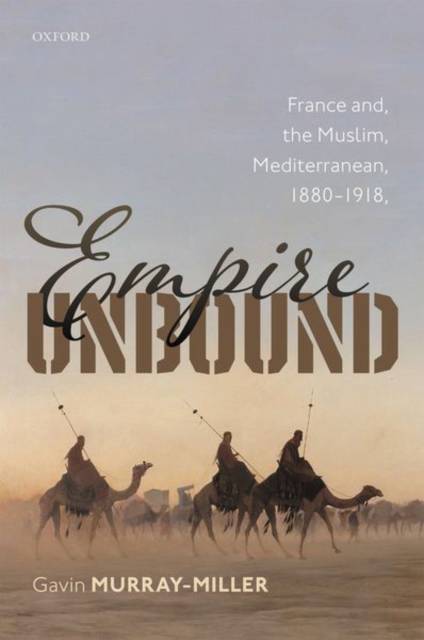
- Afhalen na 1 uur in een winkel met voorraad
- Gratis thuislevering in België vanaf € 30
- Ruim aanbod met 7 miljoen producten
- Afhalen na 1 uur in een winkel met voorraad
- Gratis thuislevering in België vanaf € 30
- Ruim aanbod met 7 miljoen producten
Zoeken
Empire Unbound
France and the Muslim Mediterranean, 1880-1918
Gavin Murray-Miller
Hardcover | Engels
€ 185,45
+ 370 punten
Omschrijving
European empires were commonly depicted in bright color-coded maps printed during the nineteenth and twentieth centuries that conveyed the expanse of European power across the globe. Despite this familiar image of a world divided up into neat imperial enclaves, the reality of empire-building often told a different story. Empire Unbound argues that European empires were never the bounded, stable entities that imperialists imagined. In examining Mediterranean empire-building in a comparative context, Gavin Murray-Miller demonstrates that the era of 'new imperialism' which arose in the late nineteenth century fostered connections and synergies between regional powers that influenced the trajectories of imperial states in fundamental ways. Breaking with conventional national approaches, Murray-Miller traces the development of France's North African empire, noting how empire-building relied upon transnational networks and cooperation with Muslims elites across borders just as much as military conquest. By looking at the inter-connected relationships linking the French, British, Italian, and Ottoman empires from the 1880s through the First World War, Empire Unbound proposes a novel spatial framework for imperial studies, showing how migrations, extraterritorial legal regimes, and cross-border interactions both abetted and frustrated imperial designs at the turn of the century.
Specificaties
Betrokkenen
- Auteur(s):
- Uitgeverij:
Inhoud
- Aantal bladzijden:
- 306
- Taal:
- Engels
Eigenschappen
- Productcode (EAN):
- 9780192863119
- Verschijningsdatum:
- 31/10/2022
- Uitvoering:
- Hardcover
- Formaat:
- Genaaid
- Afmetingen:
- 165 mm x 240 mm
- Gewicht:
- 607 g

Alleen bij Standaard Boekhandel
+ 370 punten op je klantenkaart van Standaard Boekhandel
Beoordelingen
We publiceren alleen reviews die voldoen aan de voorwaarden voor reviews. Bekijk onze voorwaarden voor reviews.







